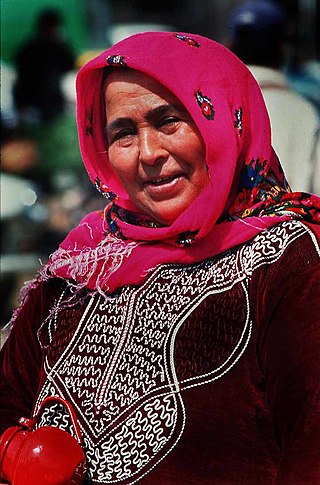
In modern usage, hijab generally refers to various headcoverings worn by Muslim women. While a hijab can come in many forms, it often specifically refers to a headscarf, wrapped around the head and neck, covering the hair, neck, and ears but leaving the face visible. The use of the hijab has been on the rise worldwide since the 1970s and is viewed by many Muslims as expressing modesty and faith. There is a consensus among Islamic religious scholars that covering the head is either required or preferred, though some Muslim scholars and activists argue that it is not required. In practice, most Muslim women choose to wear it.
Islamic clothing is clothing that is interpreted as being in accordance with the teachings of Islam. Muslims wear a wide variety of clothing, which is influenced not only by religious considerations, but also by practical, cultural, social, and political factors. In modern times, some Muslims have adopted clothing based on Western traditions, while others wear modern forms of traditional Muslim dress, which over the centuries has typically included long, flowing garments. Besides its practical advantages in the climate of the Middle East, loose-fitting clothing is also generally regarded as conforming to Islamic teachings, which stipulate that body areas which are sexual in nature must be hidden from public view. Traditional dress for Muslim men has typically covered at least the head and the area between the waist and the knees, while women's islamic dress is to conceal the hair and the body from the ankles to the neck. Some Muslim women also cover their face. However, other Muslims believe that the Quran does not mandate that women need to wear a hijab or a burqa.
Islamic feminism is a form of feminism concerned with the role of women in Islam. It aims for the full equality of all Muslims, regardless of gender, in public and private life. Islamic feminists advocate women's rights, gender equality, and social justice grounded in an Islamic framework. Although rooted in Islam, the movement's pioneers have also utilized secular, Western, or otherwise non-Muslim feminist discourses, and have recognized the role of Islamic feminism as part of an integrated global feminist movement.

In France, there is an ongoing social, political, and legal debate concerning the wearing of the hijab and other forms of Islamic coverings in public. The cultural framework of the controversy can be traced to France's history of colonization in North Africa, but escalated into a significant public debate in 1989 when three girls were suspended from school for refusing to remove their headscarves. That incident, referred to in France as l'affaire du foulard or l'affaire du voile, initially focused the controversy on the wearing of the hijab in French public schools. Because of the wide-ranging social debates caused by the controversy, l'affaire du foulard has been compared to the Dreyfus affair in its impact on French culture.
Diouf, or "Joof" is a Serer surname carried by several personalities:
Feminism in Egypt has involved a number of social and political groups throughout its history. Although Egypt has in many respects been a forerunner in matters of reform particularly "in developing movements of nationalism, of resistance to imperialism and of feminism," its development in fighting for equality for women and their rights has not been easy.

In modern usage, ḥijāb (hijab) generally refers to the various headcoverings frequently worn by Muslim women. Wearing hijab is mandatory in some Muslim countries, and optional or restricted in other majority Muslim and majority non-Muslim countries. In the Indonesian Aceh province, Muslim women are required to wear the hijab and all women are required to do so regardless of religion in Iran and Afghanistan. In countries such as Saudi Arabia, the hijab is not required. Meanwhile, in Gaza, Palestinian school officials have voted to require young girls to wear hijab, while Palestinian jihadists belonging to the Unified Leadership (UNLU) have rejected a hijab policy for women. They have also targeted those who seek to impose the hijab.
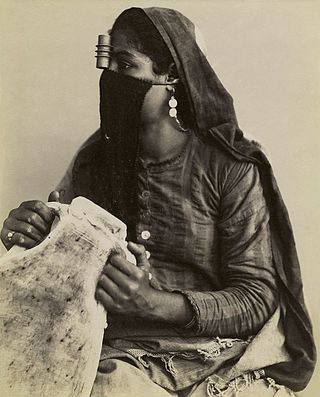
In a predominantly Muslim society, as many as 90% of women in Egypt have adopted a form of veiling. A majority of Egyptian women cover at least their hair with the hijab. A hijab refers to a head covering that is worn by Muslim women. Although the phenomenon of wearing the niqāb, a veil which covers the face is not as common, the niqab in Egypt has become more prevalent. While a few women in Egypt wear a black niqab along with a billowing black abaya as seen in countries such as Saudi Arabia, many choose to wear different colors of the niqab or manipulate the hijab to cover their face. Regardless, the growing trend of munaqqabat, or women who wear the niqab, has alarmed the authorities. They have begun to see this dress as a security threat, because it hides the face, and because it is perceived as a political statement, a rejection of the state in favor of a strict Islamic system.

Women in Senegal have a traditional social status as shaped by local custom and religion. According to 2005 survey, the female genital mutilation prevalence rate stands at 28% of all women in Senegal aged between 15 and 49.

World Hijab Day is an annual event founded by Nazma Khan in 2013, taking place on 1 February each year in 140 countries worldwide. Its stated purpose is to encourage women of all religions and backgrounds to wear and experience the hijab for a day and to educate and spread awareness on why hijab is worn. Nazma Khan said her goal was also to normalize hijab wearing.
Paye is a surname and may refer to:
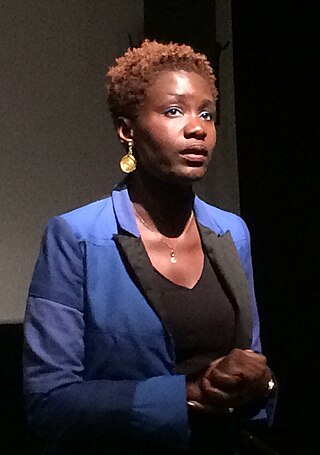
Rokhaya Diallo, is a French journalist, author, film-maker, and activist for racial, gender and religious equality. According to The New York Times, she is “one of France's most prominent anti-racism activists.” She is a BET-France host and has produced and/or directed documentaries, television and radio programs. She has published: Racism: a guide, France Belongs to Us, France: One and Multicultural and How to talk to kids about racism, a graphic novel Pari(s) d'Amies, and Afro! featuring Afro-Parisians who wear natural hairstyles.

Hijabophobia is a type of religious and cultural discrimination against Muslim women who wear the hijab. The discrimination has had manifestations in public, working and educational places.
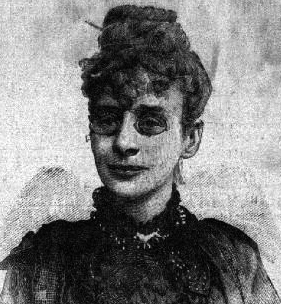
Marie-Rose Astié de Valsayre was a French violinist, feminist, nurse and writer, who is remembered for attempting to overturn legislation prohibiting women to wear trousers and for a fencing duel she had with an American woman. After studying medicine, she had provided emergency services during the Franco-Prussian War in 1870. In 1889, she created the Ligue de l'Affranchissement des femmes calling for women to be added to the electoral lists.
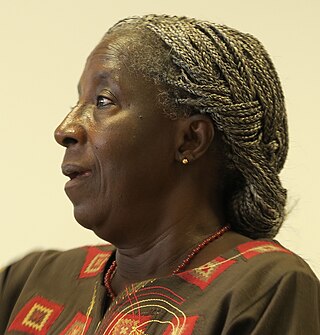
Fatou Sow is a Senegalese feminist sociologist specialising in sociology of gender.
Yasmine Mohammed is a Canadian university instructor, human rights activist and author. Mohammed, who escaped from a forced, abusive marriage to Al-Qaeda operative Essam Marzouk and became an advocate for women's rights through her non-profit organization Free Hearts, Free Minds. She is a member of the Center for Inquiry Speaker's Bureau and on the board of advisory for the Brighter Brains Institute.

Islamic feminist views on dress codes include views on issues surrounding women's dress codes in Islam and focusing especially on the hijab and niqāb.
Anne Zelensky is a French feminist author and activist.

Collectif Némésis is an organisation in France and Switzerland for women aged 18 to 30, describing itself as feminist and identitarian. The organisation is named after Nemesis, the Greek goddess of revenge, and was founded by Alice Cordier in 2019. The organisation believes that non-European immigrants, particularly Muslims, present an elevated risk of violence towards women. The organisation has been condemned as racist by mainstream feminist organisations.
Anaïs Bourdet is a French feminist activist, against street harassment and the rape culture.










